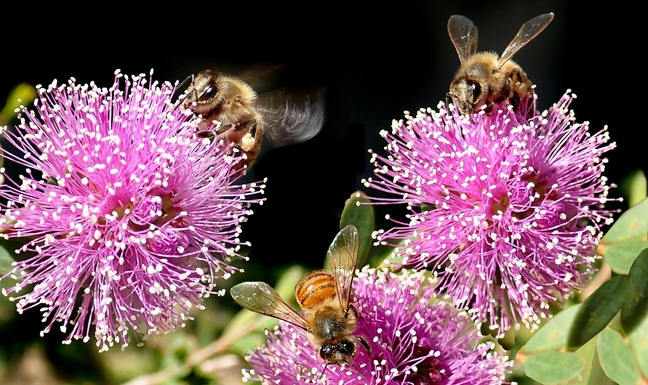The Buzz About Bees
Rationale
Understanding the interdependence between bees and food sources encourages us to care for the natural world and think and act in more sustainable ways.
Big Question
Why are bees important for humanity?
Guiding Question/s
- How can we inspire others to protect bees?
- How can we persaude others to protect bees?
Essential Questions
- Why do bees sting?
- What is the difference between native bees and honey bees?
- How do bees make honey?
- Why are bees important to the First Peoples of Australia?
- Why do humans and animals need bees?
- What are the threats to bees and how can we protect them?
Future Action
Students will have a deeper appreciation of the interdependence between humans and the natural world. They will be more aware of where their food comes from and show greater care and respect when interacting with the natural world. Students will also develop a greater range of strategies to use when communicating important messages with others in the community.
Immersion Phase
Immersion
Your students will participate in immersion experience/s and record their ideas and questions.
Your students will participate in immersion experience/s and record their ideas and questions.
Launch Phase
Questions
Your students are going to develop questions to add to the classroom Wonder Wall.
Your students are going to develop questions to add to the classroom Wonder Wall.
Research Phase
Research
Your students will conduct and record research and reflect on their effort at the end of each research session.
Your students will conduct and record research and reflect on their effort at the end of each research session.
Synthesis Phase
Findings
Your students will share and summarise their research findings and present what they have learnt with the rest of the class.
Your students will share and summarise their research findings and present what they have learnt with the rest of the class.
Assessment
You will conduct a conference with each student to assess their understanding of the content they have learnt during their research.
You will conduct a conference with each student to assess their understanding of the content they have learnt during their research.
Collaboration Phase
Product Plan
Your students will select product/s to create in response to the guiding question of this investigation.
Your students will select product/s to create in response to the guiding question of this investigation.
Product Creation
Your students will work in their Investigation Group to create their product/s and reflect on their role during this session.
Your students will work in their Investigation Group to create their product/s and reflect on their role during this session.
Exhibition Phase
Exhibition Preparation
Your students will prepare their product/s for the exhibition.
Your students will prepare their product/s for the exhibition.
Exhibition
Your students will share their product/s at the exhibition.
Your students will share their product/s at the exhibition.
Evaluation Phase
Feedback
Your students will analyse feedback they received from the attendees of the exhibition, conduct self-assessment using rubrics, and reflect on social skills.
Your students will analyse feedback they received from the attendees of the exhibition, conduct self-assessment using rubrics, and reflect on social skills.
Future Action
Your students will reflect on what they have learnt during this investigation, consider the Habits they have practised, and revisit questions on the Wonder Wall.
Your students will reflect on what they have learnt during this investigation, consider the Habits they have practised, and revisit questions on the Wonder Wall.


